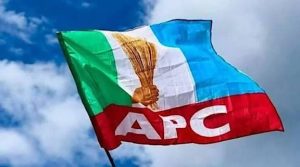The International Monetary Fund (IMF) has raised Nigeria’s economic growth forecast for 2025 to 3.9 per cent, a 0.5 percentage point increase from its earlier projection.
The Fund attributed the improved outlook to stronger macroeconomic stability, rising investor confidence, and increased oil output.
The upward revision was announced on Tuesday during the presentation of the IMF’s latest World Economic Outlook report at the ongoing World Bank/IMF Annual Meetings in Washington, D.C.
For 2026, the IMF projects Nigeria’s growth to further strengthen to 4.2 per cent, reflecting a 0.9 percentage point improvement from its previous forecast.
The Fund said the revision reflects reduced domestic uncertainty and Nigeria’s limited exposure to the new tariffs imposed by the United States, which have had minimal impact due to the country’s modest trade links with the U.S.
According to the IMF, the Nigerian economy has shown notable resilience in recent months. It was observed that the exchange rate has appreciated, financial conditions have improved, and investor sentiment has strengthened since July.
“The country’s fiscal stance remains supportive, while the hydrocarbon sector has benefited from higher oil production and improved security around key installations. These factors together underpin the stronger growth outlook for Nigeria,” the Fund stated.
The IMF also revised its estimate for 2024 growth upward to 4.1 per cent, representing a 0.7 percentage point increase from its earlier forecast.
It explained that the adjustment followed the recent rebasing of Nigeria’s Gross Domestic Product (GDP), which now captures a wider range of economic activities, including those within the informal sector.
The projection is coming barely a week after the World Bank projected that Nigeria’s economy will grow by 4.4 percent in 2027, compared to the 4.2 percent earlier projected for the year 2025.
The World Bank said the growth will be driven by services and supported by agriculture and non-oil industry.
Samer Matta, the World Bank’s senior economist for Nigeria, in a presentation titled, “From Policy to People: Bringing the Reform Gains Home” said inflation is expected to gradually ease but remain elevated, requiring sustained monetary discipline and structural reforms to tackle food prices, the “biggest tax on the poor”.
Meanwhile, the IMF called on Nigeria and other emerging economies to deepen the fight against illicit financial flows in order to restore public trust in government institutions.
IMF Managing Director Kristalina Georgieva who made the call during a Civil Society Town Hall at the ongoing IMF World Bank Annual Meetings in Washington, stated that effective anti–anti-money-laundering frameworks have become indispensable for sustaining growth and attracting investment, especially in countries struggling with high public debt and leakages in public finance.
“Illicit financial flows, what we call dirty money, undermine stability and public trust. Five to ten years ago, this was underestimated; today, it is central to our analysis and policy advice.
